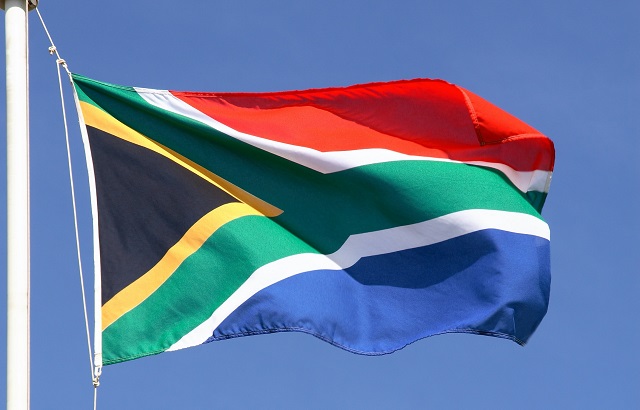South Africa has been placed on the greylist of the Financial Action Task Force (FATF), which is an intergovernmental body that sets global standards to combat money laundering and terrorist financing.
The country will now become a “jurisdiction under increased monitoring” and countries will have to actively work with the FATF to address strategic deficiencies to counter money laundering, terrorist financing and proliferation financing.
South Africa now becomes the second G20 country to be on the greylist after Turkey were added in 2021.
FATF said on 24 February that South Africa had “made a high-level political commitment to work” with the body to strengthen the effectiveness of its anti-money laundering regime.
It added that since 2021 it has made “significant progress” on recommended actions to improve its system including by developing national anti-money laundering and counter terrorism financing policies.
The body said that South Africa will have to implement eight steps of a FATF action plan to get itself of the greylist.
International Adviser spoke with a range of firms to discuss how the greylisting will impact the South African advice and investment markets.
‘Good position’
Francis Marais, product director at Morningstar Investment Management South Africa, said: “What is perhaps a bit more obvious is the risk that greylisting poses to foreign direct investments, specifically from European countries. It is therefore imperative that South Africa address these weaknesses or shortcomings as identified as soon as possible. The longer the greylisting continues the worse these effects could be which would then inevitably feed through to asset class returns.
“South Africa is, however, in a relatively good position, when compared to some of the incumbents on the grey list and has already shown intent by addressing some of the concerns and weaknesses. Indeed, should the country not be greylisted, the two laws already passed, in record time, should put us on an even stronger footing going forward and re-establish South Africa as an important global participant in the world financial markets.”
Lindsay Bateman, head of business development at Brooks Macdonald International, said: “While the move wasn’t a surprise, it has resulted in an immediate depreciation of the South African Rand on global currency markets and has dealt a significant reputational blow to the country.
“In addition to the potential currency impact, the costs of conducting global business for asset managers, banks, and other financial intermediaries will be impacted. This is due to the need for ‘enhanced due diligence’ on factors such as the source of wealth and funds, as well as greater ongoing supervision. The country faces increased risks, including concerns about greater capital outflows, as well as higher transactional, administrative, and funding costs, particularly in the banking sector.
“The listing is expected to be challenged for review in June and since many financial firms will initially bear additional expenses, the immediate influence on international financial transactions may be subdued.”
Rex Cowley, director at Overseas Trust & Pension, said: “The grey listing of South Africa is very unfortunate given the efforts taken by legislature, administrative bodies, and other authorities to address the issues identified in the 2021 mutual evaluation report. The grey listing will increase the administrative burden on the average person and all foreign provider of accounts to South Africans.
“Whether these costs are passed on or not time will tell but it is a far from desirable position. What seem unfair is that the majority of impact will be on the joe public when the drivers for the grey listing had nothing to do with them, and comes from state corruption, associated criminal activity and failures to convict or address perpetrators.”
Impact for intermediary market
The country is set for more disturbance, but what does this mean for South Africans who may be concerned about their investments, pensions and overall financial planning?
Michael Yuille, managing director at Northern Cross Wealth Management, added: Well, the immediate effect is that South African companies and individuals that trade or invest internationally will be subject to enhanced due diligence, which will add complexity and costs to these transactions.
“In addition, the likelihood is that the Rand may depreciate further against major international currencies, such as the US dollar and British pound.
“This, in turn, will make trading and investing internationally more expensive for South Africans, and may dissuade people from diversifying their portfolios into overseas markets, which should be one of the fundamental aspects of a truly diversified investment portfolio. South Africa clearly has a plan to be taken off the grey-list, it is now a question of how quickly it can be implemented.
Rashay Makan, managing director at Carrick Wealth South Africa, added: “Carrick Wealth are expecting increased transaction costs from international fiduciary, life, platform and investment providers. In addition, clients can expect increased scrutiny and enhanced due diligence, particularly surrounding source of wealth.
“These enhanced due diligence processes will certainly add to the overall transaction costs and increase processing turnaround times for clients.”








